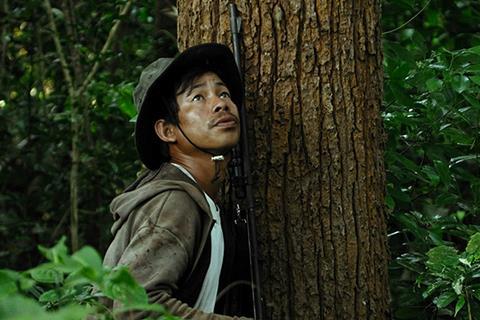The documentarian’s latest film was shot over four years and premieres in Tokyo competition

Dir: Rithy Panh. Cambodia/France. 2025. 87mins
Made over the course of four years, the latest from Cambodian documentarian Rithy Panh follows the lives of a handful of families from among Cambodia’s indigenous Bunong people. We Are The Fruits Of The Forest doesn’t say anything we don’t already know about late-stage capitalism, environmental decimation and vanishing cultures, but Panh’s gentle insistence that we look at the real impact of these issues, along with his unfettered honesty, makes for compelling, if distressing viewing.
A combination of simmering rage and crushing sadness
Panh has long been recognised for his clear-eyed examinations of the Pol Pot years and its fallout, starting way back with his 1989 debut Site 2. He sprang onto the global cinema stage with 2003 Cannes title S-21: The Khmer Rouge Killing Machine, and Fruits Of The Forest is just as affecting if slightly more emotional. While never directly referencing the notiorious Khmer-Rouge era (1975-1979), the film aligns with Panh’s earlier work – which also includes Graves Without A Name (2019), The Missing Picture (2013) and Duch, Master Of The Forgest Of Hell (2012) – in its reflection of the destructive impact of new powers on community and culture. It should garner further festival attention following its Tokyo competition premiere, as well as interest from boutique and doc-focused distributors.
Fruits Of The Forest makes good use of archival material from the days in Cambodia’s mountainous northeastern region before the influence of multinational corporations and foreign churches was felt among the Bunong. They are an animist culture still trying to live in harmony with nature the way their ancestors did; never over-cultivating the forest land, working collectively and respecting crucial spiritual ceremonies, in 2025, however, the Bunong are facing challenges, including the encroachment of cash crop farming and rising conversions to Christianity among the people.
A combination of simmering rage and crushing sadness informs the entire film, as the elimination of an entire culture is threatened thanks to the simple need to eat. The modern-day Kreb, Choeut and Pritch families (among others) find themselves forced to make choices their parents and grandparents never had to; using machinery, renting land that was previously for all or working for someone else for an insulting $7 per day. Their staple rice crop becomes harder to grow thanks to punishing weather and game becomes harder to hunt thanks to deforestation. The Bunong believe their bad fortune to be angry spirits punishing them with too much rain and too much wind. Anyone else might see it as a product of climate change, rampant corporate development and a legacy of colonialism.
Panh and his crew of cinematographers objectively observe the families’ no-win situations by complementing the archival material with jarring juxtapositions of Cambodia’s verdant, soothing hills. From a distance the region looks as abundant as ever but, as Panh and his crew keep rolling a more layered picture eventually emerges.
As ever, Panh gives his subjects the space to tell their own story, and they matter-of-factly describe the truth of the situation at hand. (Unsurprisingly, there are hints at the Bunong’s second-class citizenship stemming from the Khmer Rouge years.) The oft-made point that “the forest is gone” – and the devastating impact that has on every aspect of the Bunong’s life – becomes like a repeating, poetic aural motif that helps to lend We Are The Fruits Of The Forest its stealthy power.
Production companies: CDP
International sales: Playtime, info@playtime.group
Producer: Catherine Dussart
Cinematography: Rithy Panh, Mourng Vet, Cheng Socheat, Sok Chan Rado, Prum Mesa
Editor: Rithy Panh
Music: Marc Marder
























